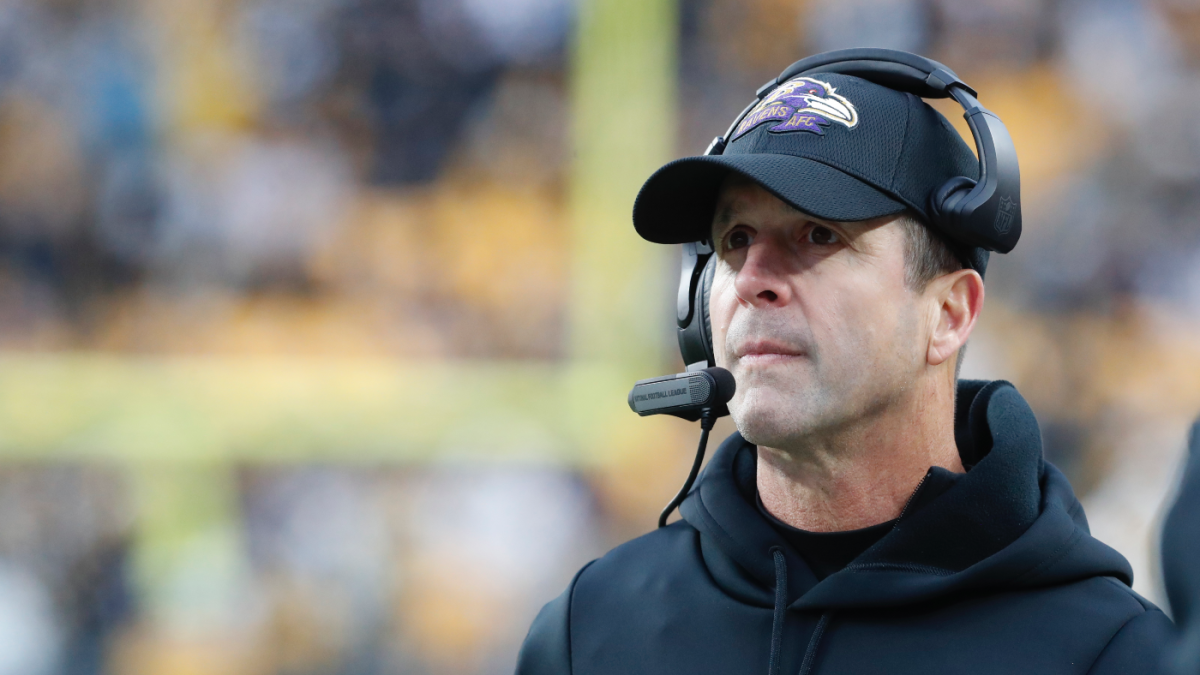Exploring the Convergence of NFL Stardom and Olympic Flag Football
The introduction of flag football as a new Olympic sport in the 2028 Games is stirring up a complex dialogue within the world of American football, particularly concerning the role NFL stars might play in this global stage. This evolving situation offers a fascinating lens to examine the tensions between innovation in sport and the entrenched priorities of professional football, with the Baltimore Ravens and their head coach John Harbaugh serving as a prime example.
The NFL’s Forward-Looking Vision
Flag football represents an intriguing evolution within the broader football landscape. By spotlighting a format that emphasizes agility and skill over physical contact, the NFL is strategically positioning flag football as a safer, more accessible gateway to global audiences. The league’s endorsement of this Olympic addition reflects a deliberate effort to widen the sport’s international appeal and inspire youth participation worldwide.
This vision is not without its complications. While leadership within the NFL is optimistic, individual team management, coaches, and players approach the prospect with varying degrees of caution. The league’s ownership is on the brink of approving a framework to allow players Olympic participation, yet this move is balanced carefully against concerns about player safety, injury risk, and disruption to NFL season commitments.
John Harbaugh’s Guarded Approach
John Harbaugh’s stance encapsulates the cautious pragmatism many NFL coaches embody when it comes to their star players. His concerns about Lamar Jackson—the Ravens’ electrifying quarterback—participating in Olympic flag football highlight a core tension: How do franchises protect their pivotal talent while remaining open to the sport’s growth opportunities?
Harbaugh’s comments reveal a blend of admiration and protectiveness. He regards Jackson not just as a valuable asset but as a potential all-time great, someone whose physical skill set and on-field responsibilities are uniquely demanding. This dual perspective complicates the narrative; Harbaugh’s hesitance isn’t mere resistance to change but a measured evaluation of what’s best for the player and the team’s competitive future.
Lamar Jackson: The Nexus of Opportunity and Risk
Lamar Jackson stands at the center of this unfolding story. His elite performance statistics—including a high completion rate, over 4,000 passing yards, and 41 touchdowns from last season—make him indispensable to the Ravens’ ambitions. Beyond his quarterbacking prowess, Jackson’s dual-threat playing style enhances the risk calculus. His substantial rushing yards and dynamic play increase his exposure to injury.
The stakes for Jackson—and by extension, the Ravens—extend well beyond personal glory. The question of whether Jackson should take on the additional commitment of Olympic flag football participation poses genuine concerns about wear and tear and the potential for missing critical NFL games. This decision transcends individual ambition, touching on contractual negotiations, team cohesion, and the franchise’s strategic planning.
The Larger Picture: Shaping Football’s Global Identity
This discussion highlights a broader cultural and strategic crossroads for football. Olympic inclusion of flag football offers an unprecedented platform to project American football’s appeal across the globe, reshaping its identity as an international sport. This global exposure could ignite a surge in global fanbases and youth engagement, redefining how the sport is perceived beyond traditional American borders.
Yet, real hurdles remain. Balancing the health and contract considerations of elite players against the demands of both the NFL and Olympic schedules is a formidable challenge. The NFL’s endorsement of Olympic participation necessitates nuanced policies that support player well-being, respect contractual obligations, and ensure competitive integrity.
Charting a Path Forward
Integrating NFL talents like Lamar Jackson into Olympic flag football represents both an exciting opportunity and a complex challenge. The potential to elevate flag football and, by extension, football’s global footprint is immense. However, voices advocating caution, notably from experienced coaches such as John Harbaugh, underscore the practical realities that must not be overlooked.
For the NFL, this moment demands careful orchestration—to encourage Olympic involvement that fuels the sport’s international growth, while simultaneously safeguarding players and franchises who form the competitive core of professional football. The conversations and policies shaped now will influence not only the 2028 Games but the long-term evolution of American football in a global sports ecosystem.
Closing Thoughts: A Delicate Balance of Ambition and Prudence
The emergence of flag football on the Olympic stage offers a thrilling glimpse into football’s future—one where international celebration and athletic innovation meet the high stakes of professional sport. The dialogue surrounding NFL stars’ participation, exemplified by Lamar Jackson and John Harbaugh’s contrasting perspectives, crystallizes the delicate act of balancing bold ambition with protective foresight.
As this story unfolds, the NFL’s strategic choices will determine how the sport adopts global opportunities without compromising the health and performance of its marquee athletes. This balancing act will be a defining chapter in football’s evolving narrative, one where tradition and innovation must coexist to shape a vibrant, sustainable future.











